12 Jun2019
By NCLD
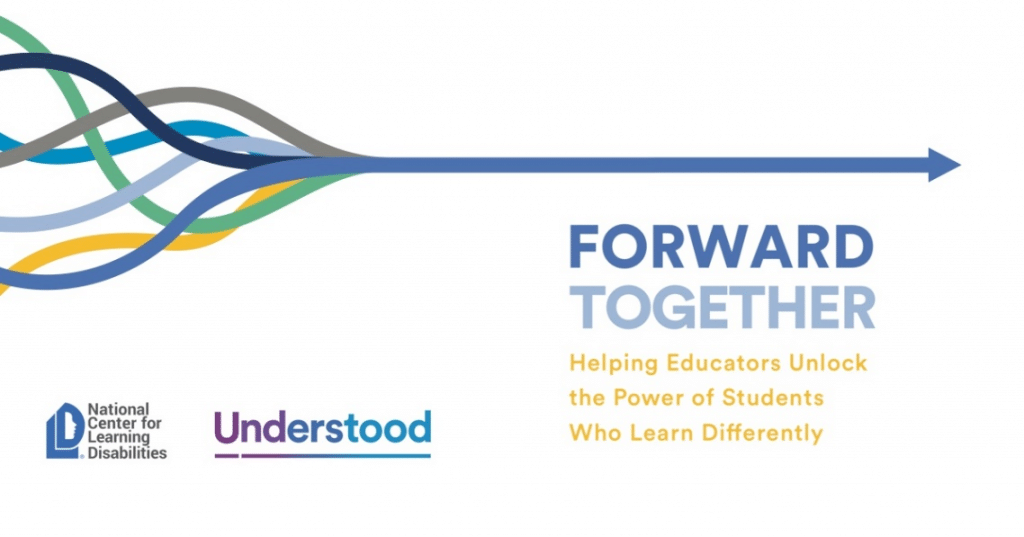
One in 5 students in the United States have learning and attention issues. This includes those with identified specific learning disabilities, diagnosed attention deficit and hyperactivity disorder, or related disorders that impact learning. Despite often having above average or average intelligence, the majority of these students are achieving below grade level. This equates to millions of students across the nation whose strengths and potential are going untapped.
The National Center for Learning Disabilities (NCLD) and Understood set out to unpack and address this problem. We partnered with teachers—often the most consistent touchpoint for students after their caregivers—to understand their experiences and insights. We rooted these experiences in rigorous research focused on general education classrooms, where the majority of the “1 in 5” spend most of their time. The culmination of this work is found in “Forward Together,” a new report from Understood and the NCLD.
AACTE is joining several other education organizations to develop Forward Together Toolkits for our teachers and teacher educators. Stay tuned for more information on the dissemination of those toolkits!
10 Jun2019
By Rosanne Luu
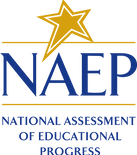 Greetings from the National Assessment of Educational Progress (NAEP) 2025 Mathematics Framework team at WestEd. NAEP, also known as the Nation’s Report Card, measures student achievement in elementary and secondary schools. Public review of the Mathematics Framework draft is underway, and we would like you to be aware of the offerings for stakeholder groups to become informed and, if you haven’t already, provide input on this important document.
Greetings from the National Assessment of Educational Progress (NAEP) 2025 Mathematics Framework team at WestEd. NAEP, also known as the Nation’s Report Card, measures student achievement in elementary and secondary schools. Public review of the Mathematics Framework draft is underway, and we would like you to be aware of the offerings for stakeholder groups to become informed and, if you haven’t already, provide input on this important document.
First, the Mathematics Framework draft, along with further information about NAEP, can be accessed at FNAEPFrameworkUpdate.org. By clicking the “Framework Draft” tab, interested parties can receive directions on how to download, comment on, and upload the draft. AACTE has reviewed the draft framework and provided feedback to NAEP. The draft was available for comment through June 7, 2019.
Additional background information on this work can be found on our website. For example, on April 25, 2019, Suzanne Wilson from the University of Connecticut and Mike Shaughnessy from Portland State University discussed their work on the NAEP Mathematics Assessment Framework on the Math Ed podcast. Also, upcoming opportunities to engage with the draft Framework, such as webinars with members of the Council of Great City Schools, are located on the Outreach Events tab.
30 May2019
By Timothy Drake

“Wait, what happened?!?”
“I had to help deliver a baby today.”
“You what!?!”
In the first day of her full-time residency, Jennifer Wilker had to help one of her teachers deliver her baby. Jennifer was in Warren New Tech High School, which is located near Norlina—a small, rural town in northeastern North Carolina that is over 30 miles from the Halifax Regional Hospital.
Though this seems like an extreme example, principals all over the country will no doubt smile, knowing that Jennifer’s experience isn’t too atypical.
30 May2019
By Brandon R.T. Frost
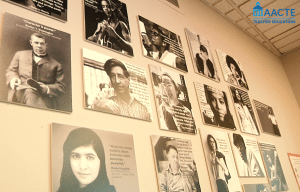
Portland State University’s Graduate School of Education offers a unique, two-year, full-time master’s degree in secondary dual education. In 2014, the Department of Curriculum and Instruction and the Department of Special Education joined together to meet the need of the surrounding communities to increase the number of teachers who are skilled in effective practices for a variety of students. Graduates of the program are equipped to implement inclusive and equitable practices.
“The secondary dual education program in the Graduate School of Education really represents, I think, innovation, collaboration, and equity and inclusion at its highest levels,” says Marvin Lynn, dean of the Graduate School of Education at Portland State University. This particular program was born out of need to ensure all teachers are meeting the needs of all students in the classroom. The emphasis on diversity and equity is part of the Graduate School of Education’s strategic mission as an access university.
24 May2019
By Brandon R.T. Frost
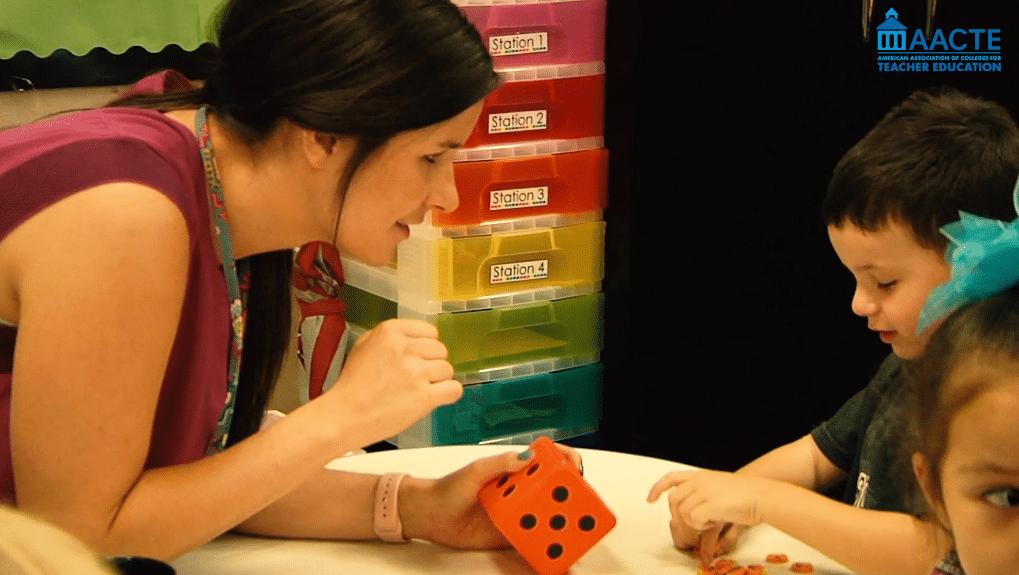
Bowling Green State University’s innovated Inclusive Early Childhood Education program seeks to address the need for teacher candidates to be well prepared to enter the classroom. BGSU recognized the importance of shifting their program to assist their teacher candidates in garnering the necessary teaching practices for a changing classroom environment. “We certainly have a wide array of learners with very diverse needs and one the things that this program helps us do is to ensure that we are graduating teachers that are ready to meet the needs of all those learners,” says Dawn Shinew, dean of the College of Education and Human Development at Bowling Green State University.
Every year, BGSU places over 900 teachers through 88 different partnerships with school districts throughout Ohio, which include both urban and rural districts and social service agencies. Teachers are expected to continue taking coursework during their clinical placements to ensure there is a connection among their coursework and their teacher training in the field. More importantly, BGSU believes teacher candidates should be exposed to the fieldwork earlier than what more traditional programs prescribe. Whereas other, more traditional programs place teacher candidates as student-teachers in their senior year of undergraduate studies, BGSU starts placing juniors in clinical settings with the hope to increase their exposure to their career and receive additional training in a variety of education settings, including special education and inclusive classrooms.
21 May2019
By Hanna Melnick

Social and emotional skills, habits, and mindsets—such as being able to manage emotions, establish and maintain positive relationships, and make responsible decisions—can set students up for academic and life success. Decades of research show that incorporating social and emotional learning (SEL) into instruction can lead to positive outcomes, from increased test scores and graduation rates to positive behaviors that support student success in school and beyond.
What can teacher preparation programs do to prepare teachers to integrate SEL into everyday classroom learning? A new case study from the Learning Policy Institute (LPI), Preparing Teachers to Support Social and Emotional Learning: A Case Study of San Jose State University and Lakewood Elementary, provides rich examples of how a publicly funded university in California integrates social and emotional dimensions of teaching and learning into its program, from courses on foundational theory and academic curriculum to fieldwork.
30 Apr2019
By Jerrica Thurman
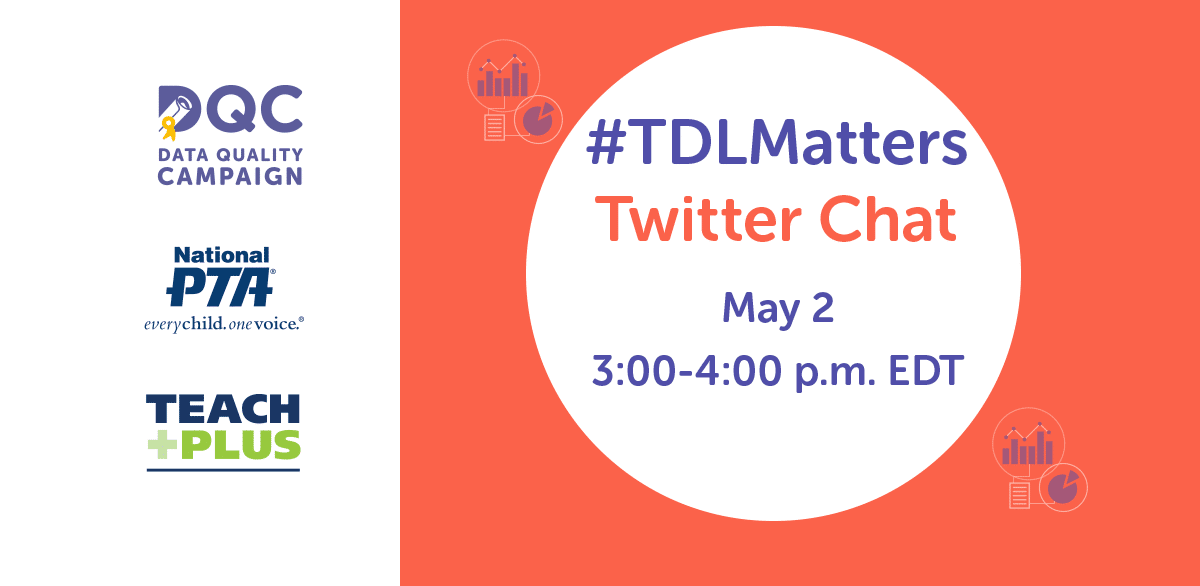
AACTE joins the Data Quality Campaign (DQC) in celebrating Teacher Data Literacy Week, April 29 – May 3. The initiative is to elevate the importance of teacher data literacy, including why it is critical to ensure students and states meet their education and workforce goals, and the different actors who are involved in making it possible.
DQC will co-host with the National Parent Teacher Association and Teach Plus a Twitter chat using #TDLMatters at 3:00pm EDT on Thursday, May 2. The discussion will address the many barriers teachers face to being data literate, what teacher data literacy looks like in action, and what policymakers can do to support teacher data literacy.
For more information about Teacher Data Literacy Week, https://dataqualitycampaign.org/topic/strong-teachers-and-leaders/.
29 Apr2019
By Jerrica Thurman
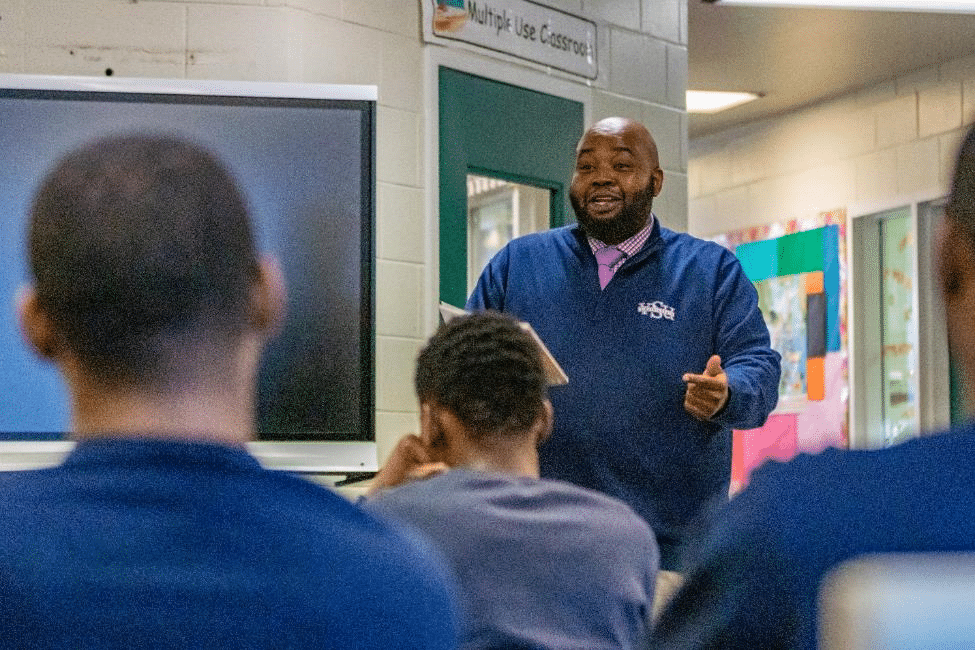
AACTE congratulates 2019 National Teacher of the Year Rodney Robinson and AACTE member institutions Virginia State University and Virginia Commonwealth University, which helped prepare him for his distinguished career path. Robinson is a 19-year teaching veteran who received the national honor last week by the Council of Chief State School Officers. (See AACTE’s press release issued today.)
Robinson teaches social studies at Virgie Binford Education Center, a school inside the Richmond Juvenile Justice Center, where he creates a positive school culture by empowering his students. He earned a bachelor of arts in history from Virginia State University and a master’s in educational administration and supervision from Virginia Commonwealth University.
29 Apr2019
By Jerrica Thurman
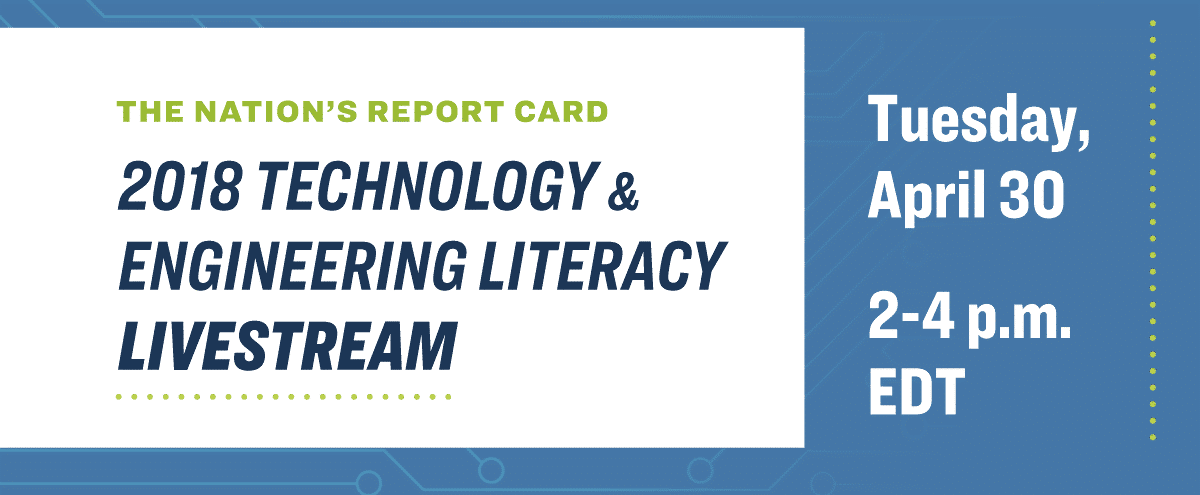
AACTE invites you to view a livestreamed panel discussion about the second release of the NAEP Technology and Engineering Literacy (TEL) results by the National Assessment Governing Board and the National Center for Education Statistics. The livestream is on Tuesday, April 30 from 2:00-4:00pm EDT. Register now!
In response to the increasing role of technology in students’ lives, the National Assessment of Educational Progress (NAEP) administers the Technology and Engineering Literacy (TEL) assessment—the first one of its kind in the United States. TEL adds valuable information to what NAEP reports for science and mathematics. This assessment measures students’ capacity to understand technology and how to design objects, processes, and systems to meet human needs. During the livestreamed event, presenters will discuss how the 2018 results compare to the 2014 debut of TEL and show how this assessment breaks the testing mold.
12 Apr2019
By Brandon R.T. Frost
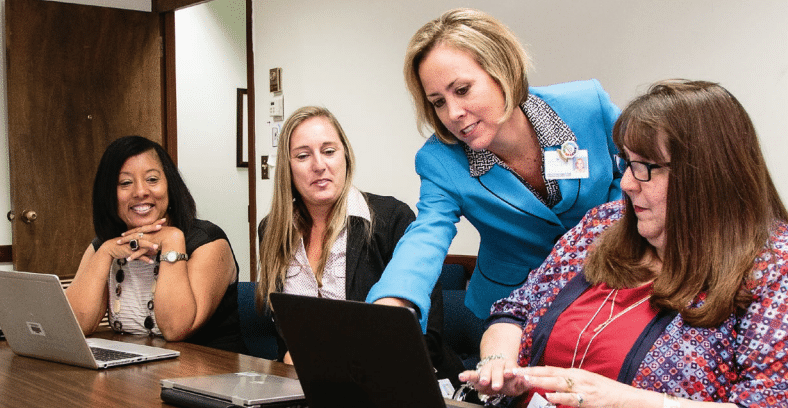
Research indicates that effective school leadership is associated with better outcomes for students and schools. A high-quality school leader affects their teachers and students for many years. School districts are also instrumental in affecting teacher and student outcomes by playing a pivotal role in supporting their school leaders.
The Wallace Foundation partnered with six large and urban school districts across the nation to study the effects of Principal Pipelines from 2011 to 2016. The purpose was to examine whether a comprehensive principal pipeline would be more effective than business-as-usual approaches to the preparation and management of school leaders. The term, principal pipeline, encompasses the following components: 1) leader standards that guide all pipeline activities, 2) preservice preparation opportunities for assistant principals and principals, 3) selective hiring and placement, and 4) on-the-job induction, evaluation, and support. School districts were also required to produce and implement systems to further develop and sustain the principal pipeline outside of the study’s original time frame.
05 Apr2019
By Brandon R.T. Frost
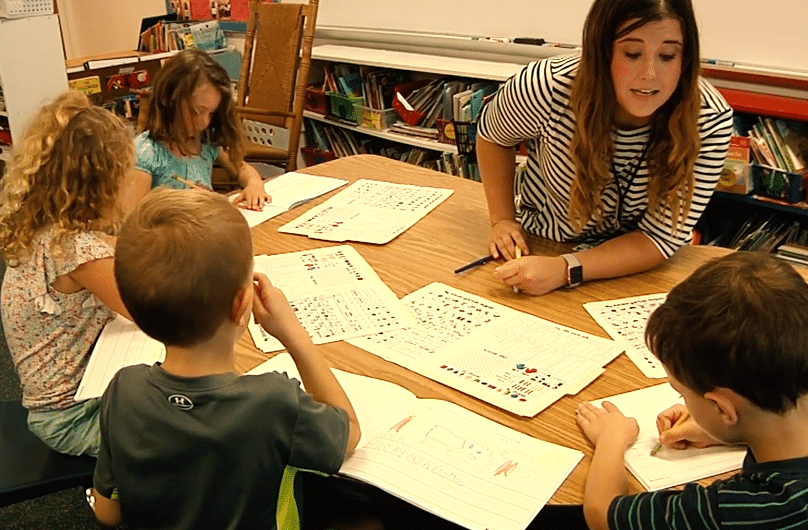
AACTE identified and documented two exemplary teacher preparation programs that ensure all of their candidates are ready to work with all students, including students with disabilities. We are pleased to feature a set of videos from each program documenting how they implement curriculum for dual certification (general education and special education) and feature extensive clinical preparation.
Bowling Green State University’s undergraduate Inclusive Early Childhood Program and Portland State University’s Secondary Dual Education Program support new and beginning teachers in teaching in inclusive classrooms. Both programs lead to certifications in general and special education. “These institutions ensure that all educators have the skills to work with students with disabilities in the 21st century,” said AACTE Consultant Jane West, “School districts scramble to hire these outstanding students, as they come with the mindset and the skillset to be effective with all students.”
29 Mar2019
By Brandon R.T. Frost
AACTE invites you to view a livestreamed presentation and panel discussion about the results of a new, groundbreaking study by the RAND Corporation on the impact of principal pipelines on districts, principals and students. The livestream is on Monday, April 8 from 10:30am – 12:00 noon ET. Register now!
Research has long confirmed principals’ influence on student achievement and the role districts play in shaping school leadership. Yet, until now, there’s been no evidence that districts approaching school leadership strategically and systematically could achieve benefits districtwide.
Launched in 2001, the Wallace Foundation’s Principal Pipeline Initiative (PPI) sought to test this hypothesis. The foundation funded six districts that implemented four interlocking components of a principal pipeline: rigorous leader standards, high-quality pre-service training, hiring procedures informed by data, and on-the-job evaluation and support.
24 Mar2019
By Jerrica Thurman

AACTE joins its fellow members of the Learning First Alliance (LFA) in celebrating Public Schools Week, March 25-29. The initiative is supported by national education groups representing teachers, principals, superintendents, parents and school board members to honor the achievements our public schools are making and the significant contributions public school educators and education advocates bring every day to public schools and their communities.
LFA members are hosting the second annual Public Schools Week on Capitol Hill in Washington and in communities large and small across the U.S. During Public Schools Week, groups representing LFA are inviting community members, lawmakers, parents and others into schools to see firsthand the wide array of programs and policies available to students that will showcase excellence in teaching and learning.
19 Mar2019
By Kirsten O'Brien

Code.org is offering scholarships for thousands of eligible middle and high school teachers to attend professional learning workshops. The workshops prepare teachers from all backgrounds to teach computer science in their classroom—no prior computer science experience is necessary. The workshops begin with a 5-day, in-person summer workshop and continue with 4 single-day follow-up workshops throughout the year. Dates and locations are assigned by region.
The lack of a computer science teacher is the biggest barrier to offering the subject in most schools, even though computer science is among the fastest growing industries in the United States. Currently, just 35% of U.S. high schools teach it and only 10% of STEM graduates study it. What’s more, computing and computer science are plagued by tremendous underrepresentation of African American, Latinx, and female students, despite the fact that these groups represent 65% of the entire U.S. population.
19 Feb2019
By Katrina Norfleet

Jacob Easley II, dean of the Graduate School of Education at Touro College, recently authored A Way Forward Toward Professionalizing Teacher Education: A Response to the AASCU Teacher Education Task Force Survey, a commentary published in the Educational Renaissance journal. In the paper, Easley reviews the recommendations resulting from the 2016 American Association of State Colleges and Universities (AASCU) Teacher Education Task Force survey. The survey was completed by member presidents, provosts, and their deans of education at public institutions of higher learning to better understand the state of the profession.
The results from the national AASCU survey yielded six recommendations for quality teacher education programs. Of the six, Easley categorizes the first four are as similar to the standards that inform national accreditation by the Council for the Accreditation of Educator Preparation (CAEP):
- Bolster clinical experiences
- Ensure strong university-school partnerships
- Step up recruitment into preparation programs
- Build agreements with community colleges








 Greetings from the National Assessment of Educational Progress (NAEP) 2025 Mathematics Framework team at WestEd. NAEP, also known as the Nation’s Report Card, measures student achievement in elementary and secondary schools. Public review of the Mathematics Framework draft is underway, and we would like you to be aware of the offerings for stakeholder groups to become informed and, if you haven’t already, provide input on this important document.
Greetings from the National Assessment of Educational Progress (NAEP) 2025 Mathematics Framework team at WestEd. NAEP, also known as the Nation’s Report Card, measures student achievement in elementary and secondary schools. Public review of the Mathematics Framework draft is underway, and we would like you to be aware of the offerings for stakeholder groups to become informed and, if you haven’t already, provide input on this important document. 










